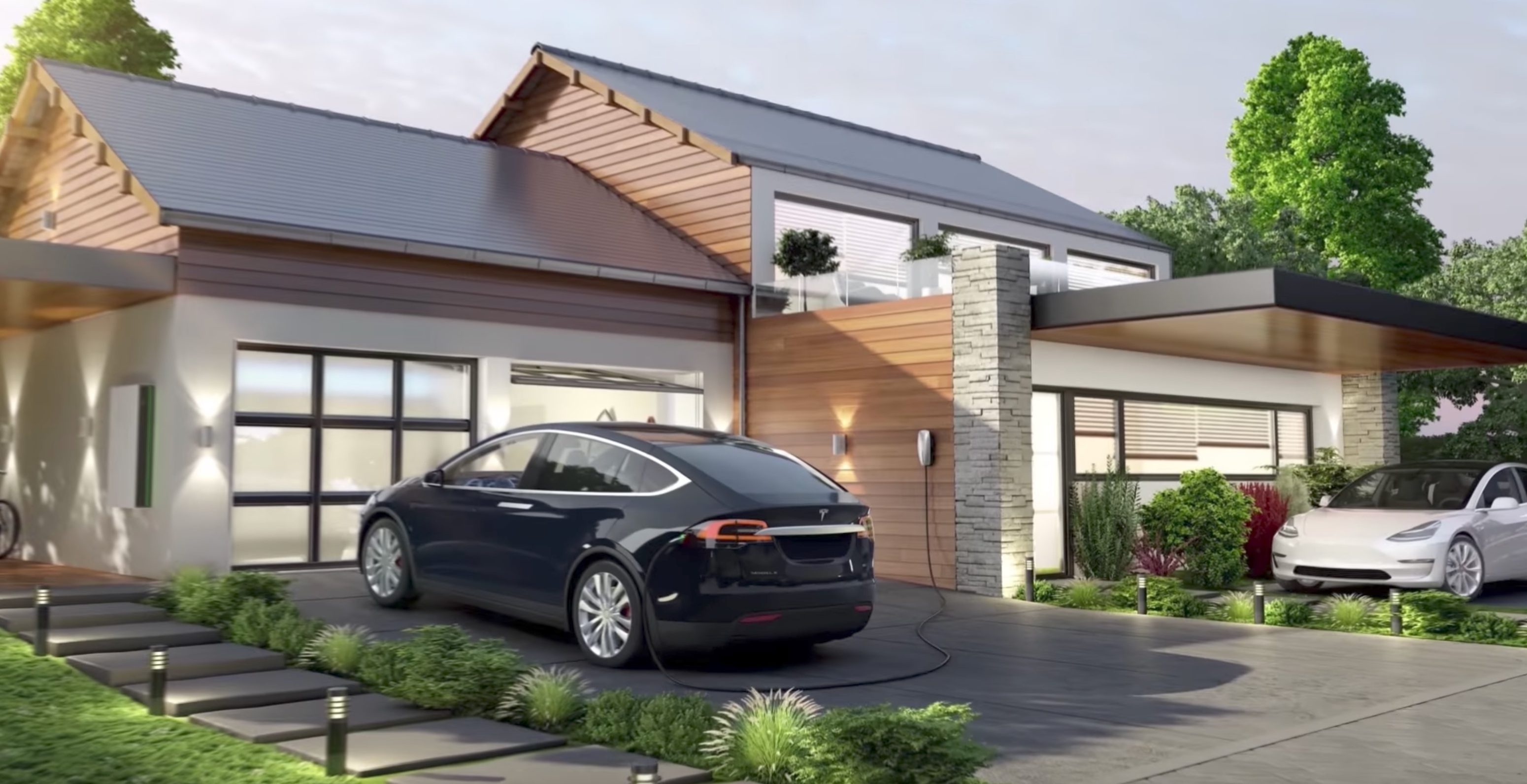Tesla Homes With Next-Gen Technology House That Comes With A Battery

Tiny home residing continues to gain popularity, drawing individuals looking for affordability, simplicity, and sustainability. However, there are quite a few authorized issues for tiny home residing that should not be missed. As people transition into this minimalist life-style, it's important to navigate the complexities of zoning laws, building codes, and land use regulations.
Zoning laws dictate how land can be used in a particular space, affecting the place tiny homes may be located. In many municipalities, conventional zoning rules don't account for the distinctive nature of tiny homes. This inconsistency can result in challenges when attempting to position a tiny home on lots. Some regions may allow tiny homes as accent dwelling items, whereas others could strictly prohibit them.
Building codes are one other essential facet of tiny home dwelling. These codes set forth standards for the construction of homes to ensure security, habitability, and structural integrity. Tiny homes, usually constructed on trailers or as prefabricated models, might not meet conventional building codes. It is vital to confirm whether or not native authorities recognize tiny homes and what specific codes apply to them.
Tesla Sustainable Homes House Fire Reported After Heavy Rain
Permitting is a essential step earlier than relocating a tiny home. Homeowners should get hold of the suitable permits to make sure compliance with native legal guidelines. This allow course of can differ significantly by state or locality and should involve inspections and fees. Failure to secure the necessary permits can result in fines or the inability to live within the tiny home.
Land concerns play a major position in tiny home legality. Many individuals choose to park their tiny homes on private property, whether or not it's a member of the family's land or a chosen tiny home group - Tesla Homes And Solar Innovations. Understanding property rights and lease agreements turns into imperative in these situations. Additionally, it’s crucial to confirm whether or not the chosen land is zoned for residential use.
Homeowners should also contemplate householders associations (HOAs) if residing in areas governed by these organizations. HOAs sometimes have strict guidelines concerning residential structures and aesthetics. Tiny homes might not comply with these laws, which may result in conflicts. It is advisable to seek the assistance of the HOA pointers before proceeding with tiny home plans to avoid disputes.
Affordable Tesla Homes Home For Sustainable Living

Financing choices pose another challenge. Many financial establishments are hesitant to provide loans for tiny homes as a outcome of their unconventional nature. Understanding alternative financing avenues, similar to private loans or specialised lenders who cater to tiny homes, is important. Exploring these choices may help potential homeowners make informed choices and secure funding.
Insurance presents another legal avenue for tiny home living. Obtaining insurance for a tiny home can differ extensively from normal householders insurance coverage insurance policies. Due to their distinctive buildings, many corporations might not present protection, or they could require specific endorsements. Finding an insurer knowledgeable about tiny homes might help mitigate risks associated with damage or liability.
Tesla Energy-Efficient Homes Video Shows Fire During Flooding Conditions
In addition to local laws, federal laws might affect tiny home dwelling. Regulations from the Department of Housing and Urban Development (HUD) define requirements for cell and manufactured homes. If a tiny home is built on a permanent foundation, it may need to satisfy these necessities. Compliance with federal tips can differ primarily based on a home’s classification.
One rising possibility for tiny home residing is placement in tiny home communities. These specialised developments usually cater to the tiny home life-style, offering devoted house and shared facilities. However, this doesn't remove the necessity for cautious consideration to native rules. Each neighborhood could have its own set of tips, leases, and obligations that residents should adhere to.
Building sustainable and self-sufficient dwelling arrangements also requires compliance with environmental laws. Tiny home builders often aim to use eco-friendly materials and decrease their carbon footprint. However, relying on the placement, there could additionally be legal guidelines relating to waste disposal, water use, and power consumption that influence how tiny homes can be designed and lived in sustainably.
Legal considerations extend past building and zoning. Renting out a tiny home as a short-term rental can open one other layer of legal complexities. Understanding local rental legal guidelines, occupancy limits, and enterprise licenses is essential for anyone looking to monetize their tiny home. Lawful practices can help keep away from penalties or potential litigation from regulatory authorities.
Tesla Homes For Off-Grid Living Home For Sustainable Living
As the tiny home movement evolves, advocacy groups work to address many of these authorized points. They goal to coach policymakers about the advantages of permitting more flexible zoning and building codes to accommodate tiny homes (Tesla Homes With Seamless Solar Integration). Engaging with local advocacy organizations may help make sure that the voice of tiny home dwellers is heard and respected in discussions concerning housing coverage.
Community outreach is vital for overcoming legal challenges in tiny home dwelling. Building relationships with neighbors and local authorities can foster understanding and cooperation. Providing details about tiny home advantages, such as affordability and minimal environmental impact, can pave the way for eventual acceptance.
Ultimately, navigating the authorized panorama surrounding tiny home residing requires diligence and preparation. An in-depth understanding of local laws, codes, and regulations is important for establishing a profitable and sustainable tiny home life-style. By conducting thorough analysis and guaranteeing compliance with all authorized concerns, prospective tiny homeowners can significantly enhance their probabilities of a clean transition into this new way of living.
The growing attract of tiny homes comes with its share of complicated authorized challenges. As extra people pursue this simplified way of life, it turns into crucial to stay informed and proactive concerning the laws that govern land use, construction, and tenancy. Being educated on these matters allows for a more seamless integration into the tiny home community, ensuring residents can maximize the benefits of living within a smaller footprint.
Tesla Homes With Seamless Solar Integration Video Shows Fire During Flooding Conditions
Tiny home living offers an revolutionary discover here answer to present housing challenges, but it doesn't come with out its obstacles. Legal concerns for tiny home residing encompass various aspects, from zoning laws to insurance and community compliance. Addressing these elements with a comprehensive understanding can facilitate a smoother journey into the world of tiny homes.
In summary, embracing the tiny home way of life necessitates a radical examination of the varied authorized issues that accompany it. Awareness of native legal guidelines, building codes, and group laws can significantly influence the success of a tiny home venture. With the right approach, tiny home living can be a fulfilling and legally compliant choice. By educating oneself and fostering positive community relationships, people may help form the means ahead for tiny home dwelling in a legally sound method.
- Understanding zoning laws is crucial; different municipalities have varying rules that may influence where tiny homes can be placed.
- It's important to discover out if the tiny home qualifies as a everlasting residence or an RV, as this distinction affects building codes and permits.
- Research native constructing codes to make sure compliance; many areas have specific requirements concerning measurement, safety features, and building supplies.
- Investigating land use laws can help keep away from conflicts with neighbors and guarantee the tiny home community adheres to native tips.
- Address potential title issues when purchasing land; some tiny homes are categorised as personal property, while others could additionally be actual estate, impacting financing choices.
- Consider the influence of homeowner affiliation (HOA) guidelines that may limit tiny home dwelling or impose additional necessities for homes inside their jurisdiction.
- Insurance policies for tiny homes differ considerably; obtaining the right protection can protect in opposition to liabilities and damages that conventional homeowners face.
- Evaluate utility hookups and rules related to water, sewage, and electrical energy to guarantee that the tiny home can be correctly serviced.
- Be aware of property tax implications; the classification of the tiny home can affect tax responsibilities and native assessments.
- Stay informed about potential adjustments in legislation, as legal guidelines governing tiny homes are evolving and may range significantly over time and placement.
What zoning laws apply to tiny homes in my area?undefinedZoning legal guidelines differ considerably by location. It's essential to verify with your native planning department to grasp whether tiny homes are permitted and if any particular rules apply.
Tesla Homes For Off-Grid Living Upcoming Plans For New Battery Systems
Do I want a building allow for a tiny home?undefinedMost municipalities require a building allow for developing or placing a tiny home on a everlasting foundation. Temporary constructions or RVs might have different guidelines, so verify with native authorities.
Can I park my tiny home on my property?undefinedParking regulations rely upon local zoning legal guidelines and land use policies. Ensure your property is zoned for residential use, and verify any HOA rules if relevant.
Are tiny homes thought-about as everlasting housing?undefinedTiny homes can be categorised as either everlasting or temporary housing. If they're on a foundation, they sometimes are seen as permanent dwellings; otherwise, they might fall beneath RV rules.
What are the utility hookup requirements for tiny homes?undefinedUtilities corresponding to water, electricity, and sewage must adjust to local codes. Check with utility suppliers and local laws to make sure proper installations and connections.
Tesla Homes And Solar Innovations Possible Cause Of House Fire Under Investigation
How do I finance a tiny home legally?undefinedFinancing options for tiny homes range. Some lenders supply loans for tiny homes on foundations, whereas others think about them RVs. Research financing options particular to your useful source tiny home's classification.
Will my tiny home need to satisfy building codes?undefinedIf your tiny home is classed as a permanent dwelling, it should meet applicable constructing codes. Always seek the advice of native building authorities to make sure compliance during building.
Tesla Homes For Off-Grid Energy Independence Home For Sustainable Living
Can I use my tiny home as a rental property?undefinedShort-term rental rules may apply if you intend to hire out your tiny home. Familiarize yourself with local rental legal guidelines and obtain essential permits to keep away from fines.
What are the tax implications of owning a tiny home?undefinedTax implications can range based mostly in your location and the classification of your tiny home. It's advisable to consult a tax professional to grasp property taxes and potential deductions.
Are tiny homes subject to native housing regulations?undefinedYes, tiny homes could additionally be subject to housing rules, particularly if they are classified as everlasting residences. Review your native housing codes to make sure compliance with security and habitability requirements.